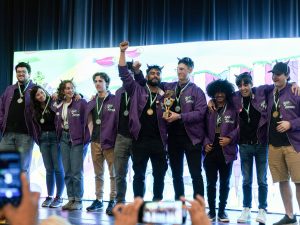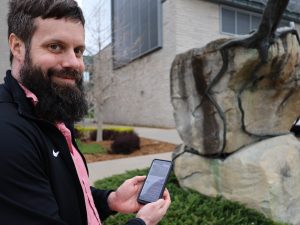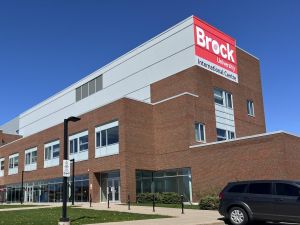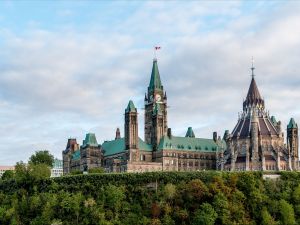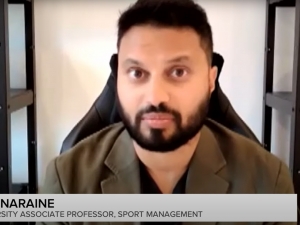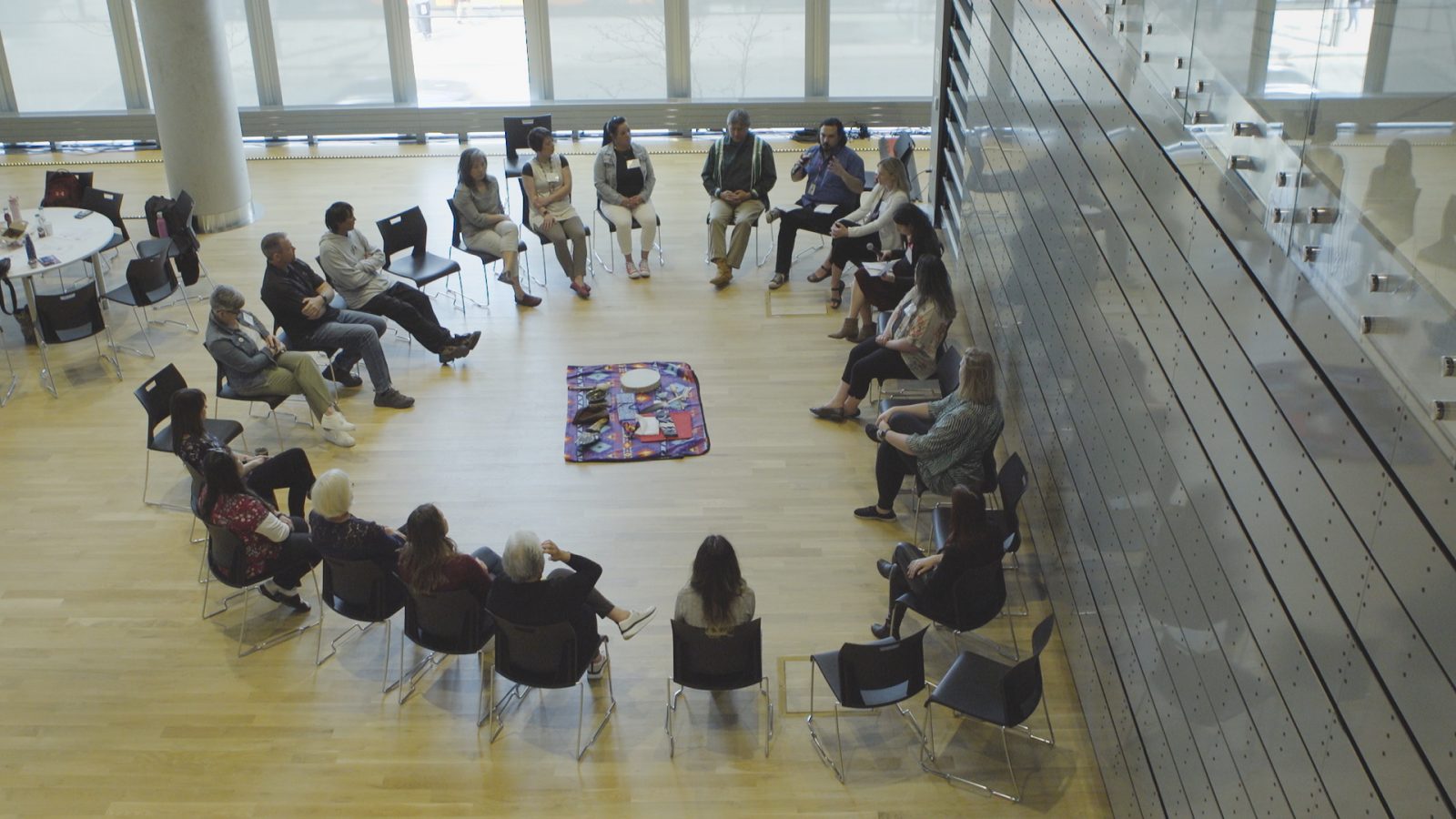 Participants shared in circles like this one at the 2023 Gathering on Indigeneity, Neurodevelopmental Disabilities and Mental Health in Ontario last May.
Participants shared in circles like this one at the 2023 Gathering on Indigeneity, Neurodevelopmental Disabilities and Mental Health in Ontario last May.Earlier this month, the 2023 Gathering on Indigeneity, Neurodevelopmental Disabilities and Mental Health in Ontario brought Indigenous community members, including those with lived experience of neurodevelopmental disabilities and mental health concerns, together with researchers and clinicians to share knowledge and form connections.
The two-day event was funded by a Canadian Institutes of Health Research (CIHR) Planning and Dissemination Grant awarded to Associate Professor of Applied Disability Studies Kendra Thomson and principle knowledge user Louis Busch of Shkaabe Makwa at the Centre for Addiction and Mental Health (CAMH), who co-organized the event with the support of research assistants Melanie Burgess and Sarah Bernier and Brock’s Knowledge Mobilization Officer, Jayne Morrish.
Busch, a Community Support Specialist, says maintaining a community focus and relying on community members to lead conversations throughout the event’s panels, presentations and circles helped “strengthen relationships and establish a new network of collaborators.”
“This gathering is just the beginning, we hope, of something that will lead to tangible action in the near future,” says Busch. “Indigenous communities have been subjected to research for the sake of research for many years, and I think what we heard loud and clear was that this needs to lead to something of substance that will positively impact families and individuals living with neurodevelopmental differences.”
Burgess, a master’s student studying self-compassion and mental health through the lens of sport psychology, says that hearing from both community members and scholars was a meaningful experience.
“I learned a lot about neurodevelopmental disabilities and especially how Indigenous culture looks at them — that they are common in Indigenous culture but it’s not talked about, so it’s great that this gathering addressed a topic that isn’t really discussed,” she says. “Everyone got a chance to contribute their knowledge, but a lot of it was listening and learning from everyone else.”
Bernier (MA ’22) agrees that listening and learning was a key factor, especially around topics that are important to her everyday work as a research analyst at CAMH’s Azrieli Adult Neurodevelopmental Centre.
“In current policies regarding personal health information, privacy in the way that data is collected and shared is really important, but we heard from people with lived experiences and cultural experts about how their data was and continues to be misused by government agencies or white, colonial researchers,” she says. “I deal with a lot of data, so that’s something that I really want to help with. It opened my eyes to an issue that I didn’t know existed, one that people need to know about so we can do something about it.”
Event participant JJ Thunder Man was gifted an eagle feather by Elder Ron Linklater for sharing his personal experiences with the gathering.
“On the first day, I was shy,” he says. “And then I heard people talking, sharing their stories, so on the second day, I don’t get shy no more and I talked.”
For Thomson, who has been working with Busch on the project since 2019, it has been crucial to highlight an issue that can be burdened by stigma and has not received adequate attention in Ontario or Canada.
“Centring the voices of people with lived experience within this particular intersection, those who are Indigenous and labelled with neurodevelopmental disabilities, is the only way we can really do meaningful work,” she says. “We tried really hard to engage people with lived experience, but that’s a continuous process and we can always do better at that. I think what can come out of this is learning how to do that better, or at least keeping that at the centre of what we’re doing.”
Morrish agrees, noting that devoting two full days to the mutual sharing of expertise created a real opportunity for knowledge exchange leading to lasting impact.
“Bringing together researchers and community members to move our knowledge and goals forward in a collaborative way offered a perfect melding of the content experts — the researchers and others with research-based knowledge — with the context experts — those who live in the community and have lived experience,” she says. “Community and those with lived experience bring critical knowledge regarding why research matters, how it matters, for whom it matters and how it can be best implemented, and that’s when you can really create and design impactful research.”
The organizers are grateful to the following for additional funding and partnership:
- Shkaabe Makwa
- Azrieli Adult Neurodevelopmental Centre at CAMH
- Brock University
- Applied Disability Studies, Brock University
- Indigenous Disability Canada/British Columbia Aboriginal Network on Disability Society
- Surrey Place and the MMW (Mashkikiiwininiwag Mazinaatesijigan Wichiiwewin)/Transitions Program
- Six Nations Health Centre
- University of British Columbia Centre for Inclusion and Citizenship
- Autism Resource Centre of Saskatchewan
- Métis Faamii Foundation

